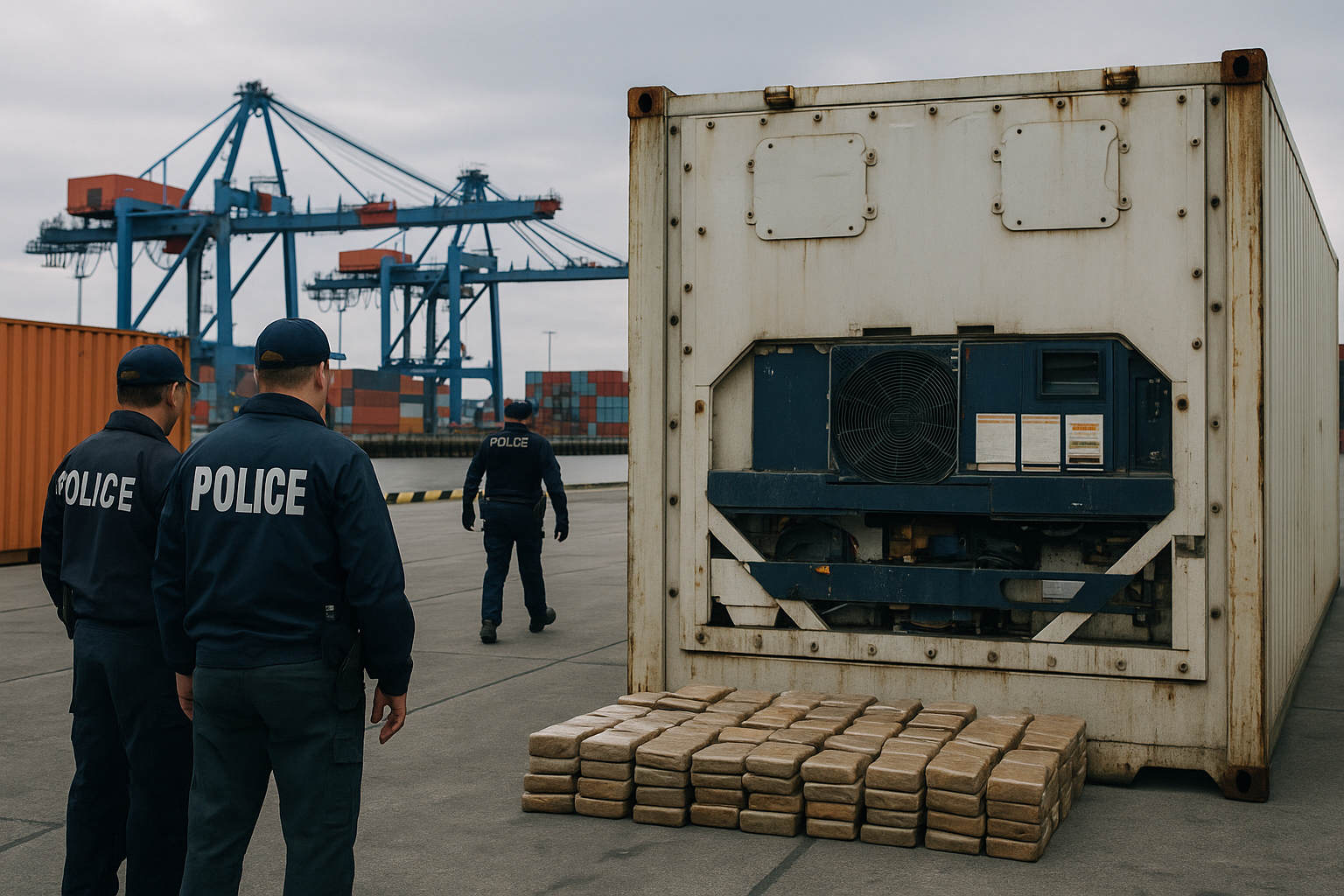Maritime security analysts continue to see refrigerated containers (“reefers”) used as high-value narcotics transport vehicles. Their perishable cargo cover, complex machinery, and lower inspection rates make them ideal concealment tools for transnational trafficking networks.
Key Findings at a Glance
| Region | Cocaine Seized in Reefers (2024–Early 2025) | Common Concealment Methods |
|---|---|---|
| Europe (Rotterdam, Antwerp, Gioia Tauro, Cork, Burgas, Thessaloniki) | 27+ tonnes (all cocaine at ports; hundreds of kg in reefers) | Bananas, pineapples, paper reels, cooling systems, engine housings |
| Australia (Port Botany) | 1+ tonne | Back-wall panels, mixed cargo reefers |
| South Africa (Durban) | ~350–450 kg | Red beans, meat boxes, cold storage reefers |
| South America (Brazil, Panama, Costa Rica, DR) | 200+ tonnes | Produce, scrap metal, sea-chests |
| Global Trend | High adaptability & mechanical concealment | Structural modifications & mixed cargo |
Reefer Bust Highlights (2024–2025)
- Gioia Tauro, Italy – 790 kg in pineapple juice; 110 kg in paper reels; 27 kg in bananas.
- Port Botany, Sydney – Over 1 tonne seized; bricks in back-wall panels from Chile & Belgium.
- Thessaloniki, Greece – 45 kg in banana reefer cooling system.
- Burgas, Bulgaria – 170 kg in double-wall banana reefer (largest in port’s history).
- Rotterdam, Netherlands – 460 kg+ in early 2025; 25.9 tonnes total cocaine seizures in 2024.
- Durban, South Africa – 350–450 kg+ in containers; largest single bust worth R150 m.
Smuggling Tactics
- Cargo Cover: Bananas, pineapples, frozen fish/meat, paper reels.
- Mechanical Hides: Cooling units, engine housings, sea-chest compartments.
- Structural Modifications: Double-walls, panel cavities.
- Mixed Loads: Groupage containers blending high- and low-risk cargo.
How They’re Caught
- Intelligence-led targeting – tracking high-risk shipments and trade anomalies.
- X-ray & scanning technology – revealing concealed compartments.
- Canine units – detecting narcotics despite heavy masking scents from cargo.
- Multi-agency cooperation – DEA, AFP, customs, and port police joint actions.
Global Security Implications
- Persistent European Entry Points: Antwerp and Rotterdam remain top targets despite record seizures.
- Australia’s Growing Role: Increasing reefer-based imports signal changing trafficking routes.
- South African Vulnerabilities: Durban emerging as a strategic transshipment point.
- Source Region Concentration: Brazil, Panama, Costa Rica, and the Dominican Republic account for bulk of global maritime supply.
Interactive Map Concept
(Future visual enhancement – each port clickable for incident details)
Legend:
🔵 Reefers – Cocaine concealed in perishable cargo containers
🟢 Non-reefer maritime seizures (bulk carriers, mixed cargo)
🔴 Large-scale container seizures (>500 kg)
Ports plotted: Rotterdam, Antwerp, Gioia Tauro, Port Botany, Durban, Richards Bay, Burgas, Cork, Thessaloniki, Santos, Paranaguá, Caucedo.
Conclusion
Reefer containers will remain a high-priority security focus in 2025. The combination of legitimate cargo cover, mechanical complexity, and lower inspection rates creates ideal conditions for trafficking networks. A proactive, intelligence-driven, and tech-enabled approach remains essential for maritime interdiction.
© 2025 Scimax Consultants – Maritime Security & Reefer Inspection Specialists

